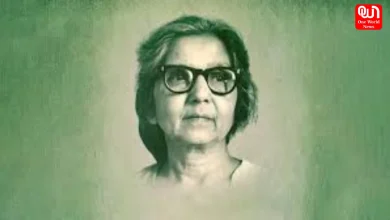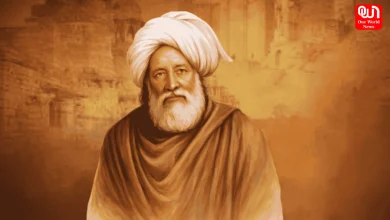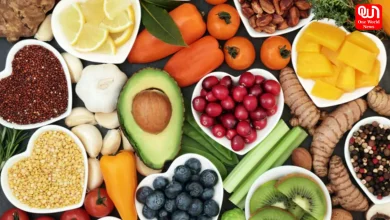Eri Silk, Sujai Family

Eri Silk, Sujai Family
Eri silk is indigenous to North East India. It is the combination of the traditional loom and the handspun yarn which gives Eri fabric produced in Meghalaya a distinctive aesthetic. This heavy irregular texture is unique to the Eri silk of Meghalaya. The qualities of Eri are a combination of the visual appearance of handspun cotton or wool, with a muted sheen of silk, it has unique thermal properties of being cool in summers and warm in winters.

Consultants of NESFAS, placing orders for the Eri Silk Scarves with Regina Sujai
The Ri –Bhoi District is the main ERi district in Meghalaya, with its fertile and agricultural based communities, Eri-culture and handloom weaving are important cottage-based industries. Its activities are focused with rearing, spinning, dyeing and weaving all taking place in the artisan’s own homes.
Eri-culture and weaving are also important activities for generating supplementary income and providing a much needed opportunity for women to contribute further to the family, especially for the elderly and the young mothers who are not able to go out to the fields. It is offering a greater role to women in socio-economic development, where weaving is a primarily subsidiary activity to farming.

Eri silk Yarn in various vegetable avaliable
At Liarbang village in Ri – Bhoi District of Meghalaya, there is a strong tradition to hand weaving. Unlike other parts of India, where much of the spinning and weaving is in the hands of men. In Meghalaya it is the exclusivity of women and her family.
In Liarbang village, the matriarchal mother of the Sujai family. Mrs. Bernica Sujai has imparted her artisan skills down the family tree from her daughters to their children, within her family of five generations. Three generations are recognized weavers and the other two generations are learning the ropes according to consultants of NESFAS.

Mrs. Regina Sujai Showing a sample of a work in p…ess of Eri silk
The Sujai family practice traditional methods of floor loom weaving from rearing of the worms, cocoons, to spinning and dyeing. The men of the household are used to help built the wooden floor looms and also rearing of the cocoons. While many other weavers have adopted modern methods of frame loom weaving or using the mill spun yarn, Beronica and Regina continue with the traditional method of floor loom weaving.
The use of the Frame Loom or a mill spun yarn changes the structure of the weaving technique which can really aid the weavers in terms of productivity. However, the traditional methods of dying, spinning and weaving is an important aspect of weaving that plays a important part in the weavers way of life also.

The 5 generations of Sujai Family who are weavers
“The two women from the Sujai Family, the great-great-grandmother, Beronica and her daughter Regina are an inspiration. They have Eri in their soul. They have invested in their skill. They are able to understand and are able to sustain themselves as weavers through the generations” According to Anna Louise, Weave Consultant for NESFAS.
Mrs. Bernica Sujai the matriarch of the family learnt from her friends when she was eighteen. She mentions “Earlier people thought the returns where slow compared to farming. However the returns are higher.” Now, it’s realizing the importance of the value of the thread they spin. Beronica, before used to sell her woven products at the local market, nowadays her reputation as a talented weaver, she weaves to orders,

The Eri silk been used to make The Ryndia Scarves
Mrs. Regina Sujai said, “As her mother is getting on with her age she wants to continue with the tradition she has taught her and hopes to motivate the younger generation to carry it on”. According to Ms. Lajop Nongsiej Local Consultant at NESFAS “The younger generation do not see the importance of continuing this tradition. The encouragement from local organizations to preserve these skills has increased the motivation in the younger generation and they do get involve in the training sessions.”
The Sujai family is well known for their dyeing technique in which they experiment with indigenous vegetable dyes on the yarn even using a plant mordant to fix the color. Therefore, the whole process has a very significant and unique system of activities where right from the yarn production up to weaving of finished fabric is done locally. Beronica and Regina are proud that not even a single item required throughout the whole process is imported from outside the District.

(L) Mrs. Beronica Sujai weaving with her traditional floor loom mill and (R) Mrs. Regina getting the yarn around the homemade bamboo spindle
`The design pattern of the fabric is mostly in checks and stripes using a combination of the vegetables dyed colors, to get a wide range of designs. Traditional motifs are also prevalent in the area which form part of the cultural design heritage.
Today, most weavers are grouped under a village cluster. Each cluster has a weaving center with improved weaving equipment, such as fly shuttle looms with jacquard. These centers and equipment’s have been introduced by the government in order to increase weaver’s productivity and create more weaving textures.
The traditional floor loom is sustainable and easy to handle for rural women inside their small living space. As it is made of a bamboo reed with wooden sticks to maintain the warp depending on the length of the weaving workshop.
Eri – Culture is an extension of natural resource management, closely integrated with agricultural communities. NESFAS, with other development agencies in Meghalaya is working to promote indigenous craft and preserve traditional livelihoods. Reviving traditional hand weaving skills and design reinforces cultural identity, benefiting the weavers, the Ri Bhoi district and the state of Meghalaya.







